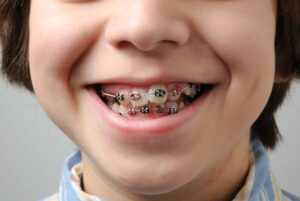Real-life Story:
Emma, a 10-year-old girl, was recently told by her dentist that she needed braces due to crowded teeth. But the moment her mom brought it up, Emma got upset and cried, “I don’t want braces! They’re ugly and painful!” Her mom felt stuck—she wanted to help, but didn’t know how.
If your child is like Emma, you're not alone. Many kids feel scared or anxious about getting braces. As a parent, your support, patience, and the right approach can make a big difference.
Why Do Kids Say "No" to Braces?
- Worried About Appearance
They fear looking “weird” or being teased by classmates. - Afraid of Pain or Discomfort
Braces can feel tight or sore at first, and this makes many kids nervous. - Can’t Eat Favorite Foods
Hard candy, popcorn, and sticky snacks are off-limits. That can feel unfair. - Don’t Understand the Benefits
If they don’t see a problem with their current teeth, they may not see the need for braces.
How Can Parents Help?
1. Let Kids Have a Say
Let them pick brace colors or small post-visit rewards. Giving them a choice helps them feel in control.
2. Talk About It as a "Growing-Up Gift"
You might say, “Braces help line up your teeth so your smile will look awesome later.”
3. Share Stories of Other Kids
Say something like, “Your cousin Lily wore braces last year, and now her teeth look amazing!” Real examples are better than just giving advice.
4. Help Them Adjust Comfortably
Get soft foods ready for the first week—like mashed potatoes, soup, or bananas. Use wax or gel (as the dentist suggests) to ease discomfort.
5. Use Positive Motivation, Not Pressure
Try a “braces journal” to track progress. Celebrate little milestones with praise or fun activities to keep them motivated.
Still Refusing? Try This:
- Let the Dentist Talk to Them
Sometimes, hearing it from a professional makes more sense to a child than hearing it from mom or dad. - Ask If Treatment Can Wait
Talk to the orthodontist—some cases can wait a year or two until your child feels ready. - Watch for Deeper Emotional Issues
If your child shows extreme anxiety or low self-esteem, you may want to speak with a counselor for support.
A Final Note to Parents
Getting braces is a journey—for both your child and your family. Refusal doesn’t mean your child is difficult. It’s just their way of saying they’re scared or unsure. With empathy and encouragement, most kids will eventually say “yes”—and later, they’ll thank you for helping them smile with confidence.













